

Sinclair's Signature Moments
After more than 23 years on the international stage, Christine Sinclair is set to retire from the Canadian national team. The 40-year-old from Burnaby, B.C. occupies rarefied air and has a legacy like few others in the history of the game. The top goal scorer in the history of international soccer. A three-time Olympic medallist, including gold in the Tokyo Games. Six World Cup appearances. TSN’s Meaghen Johnson spoke with 12 of Sinclair’s former and current teammates and coaches for their takes on No. 12’s signature moments.
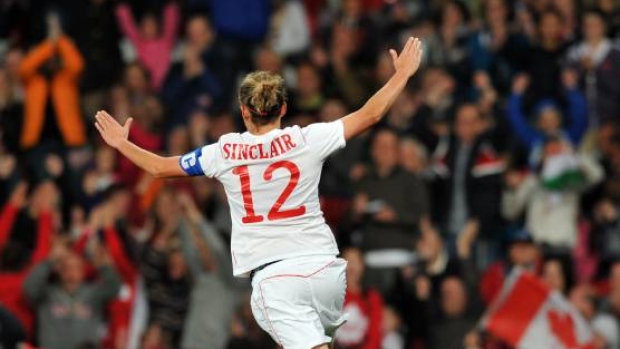
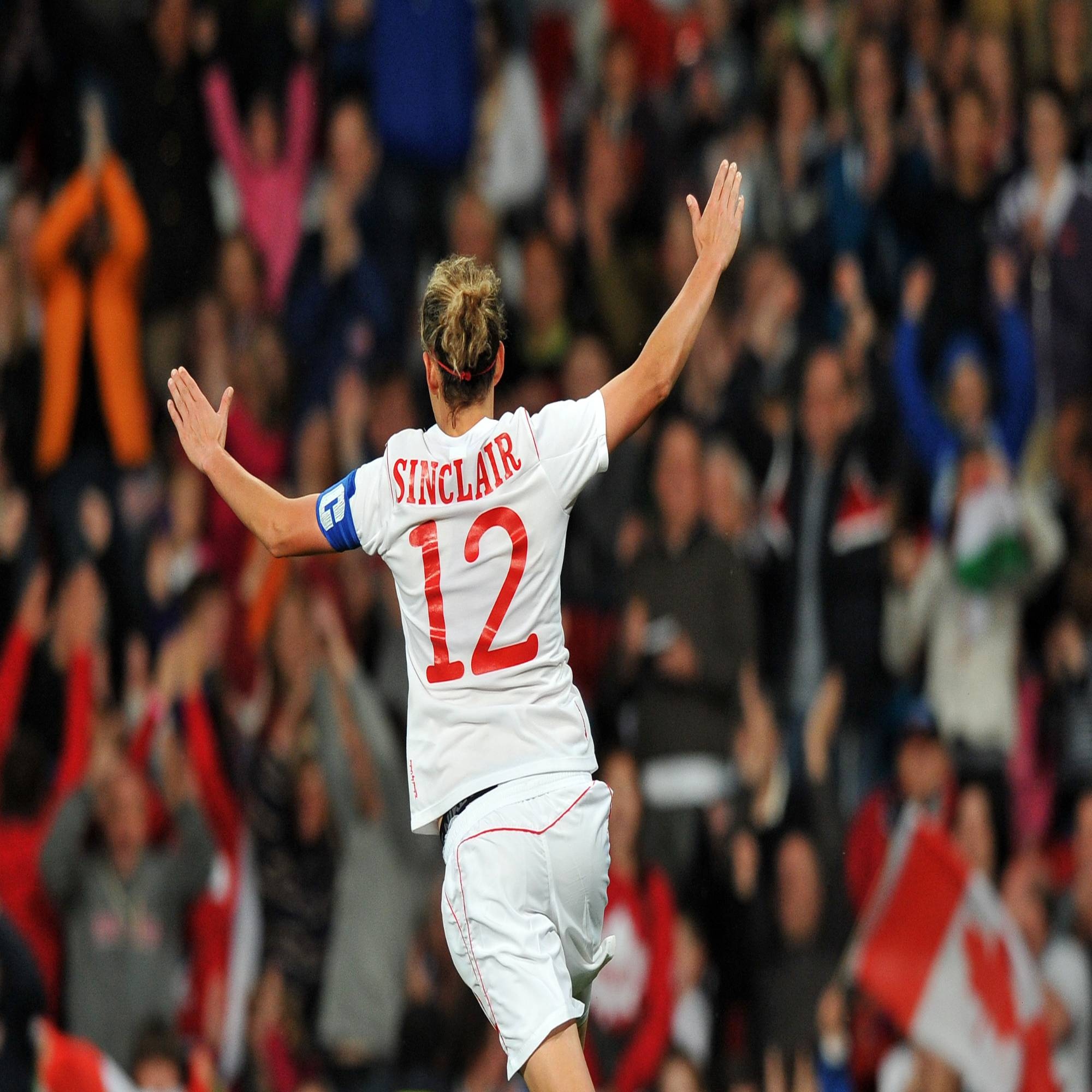
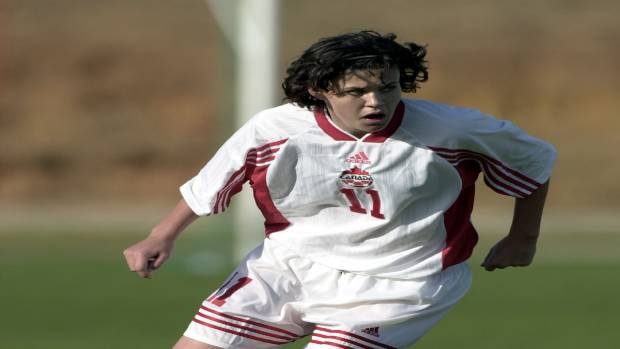
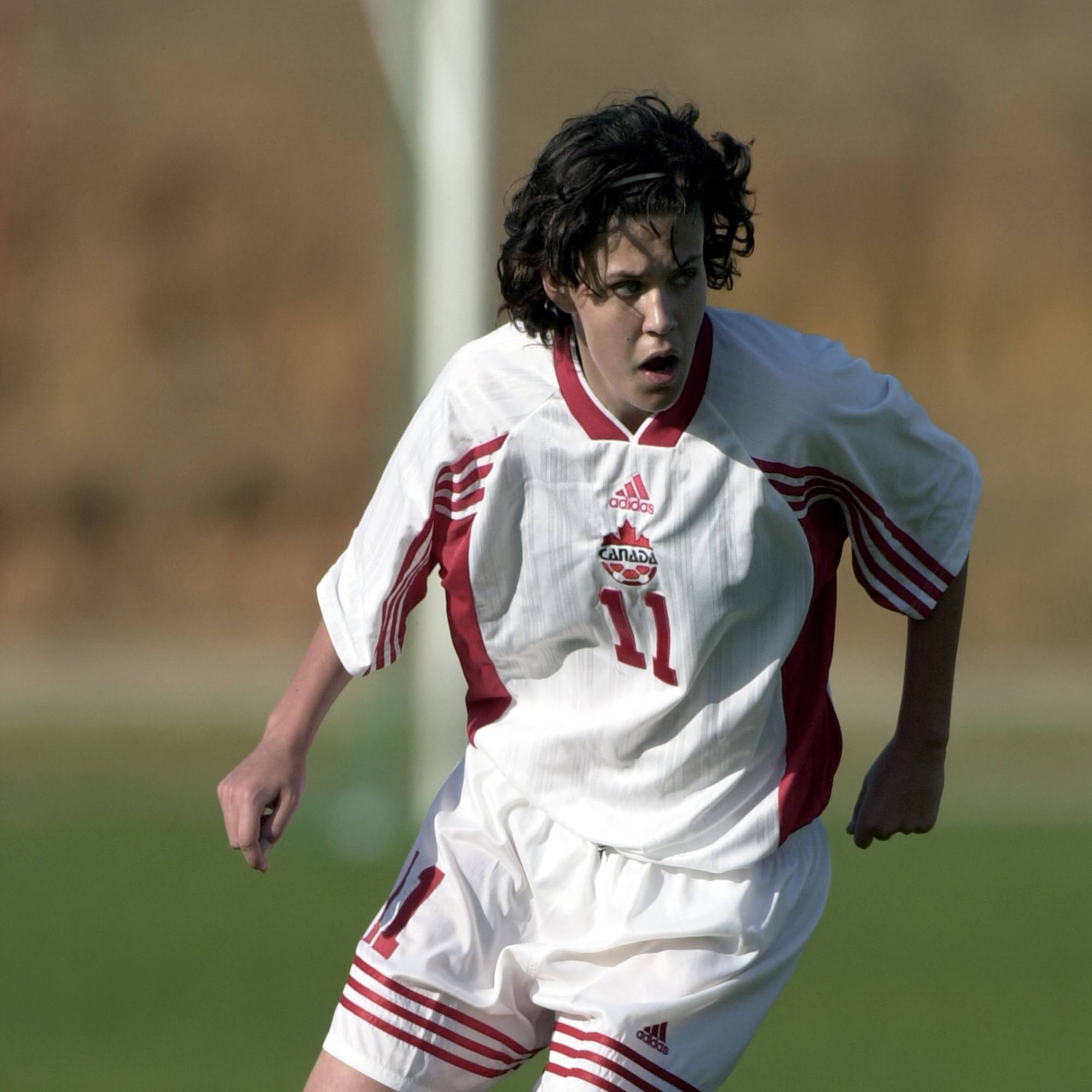
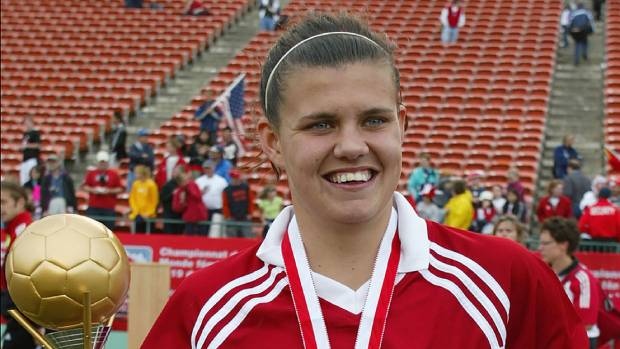
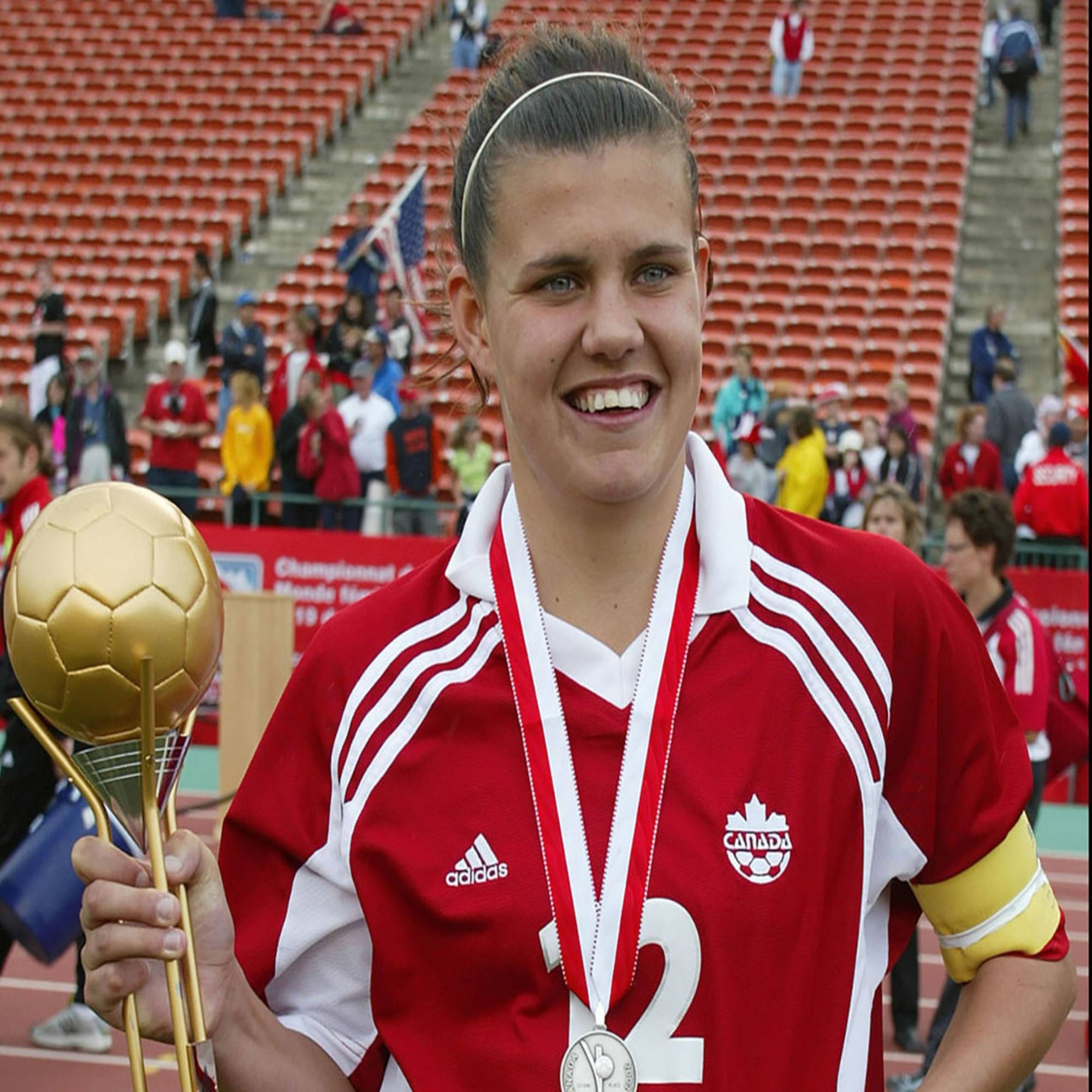
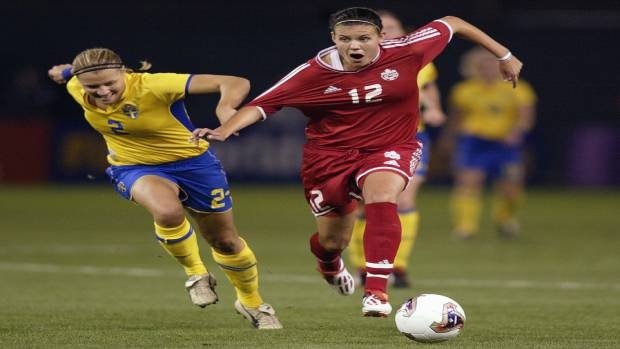
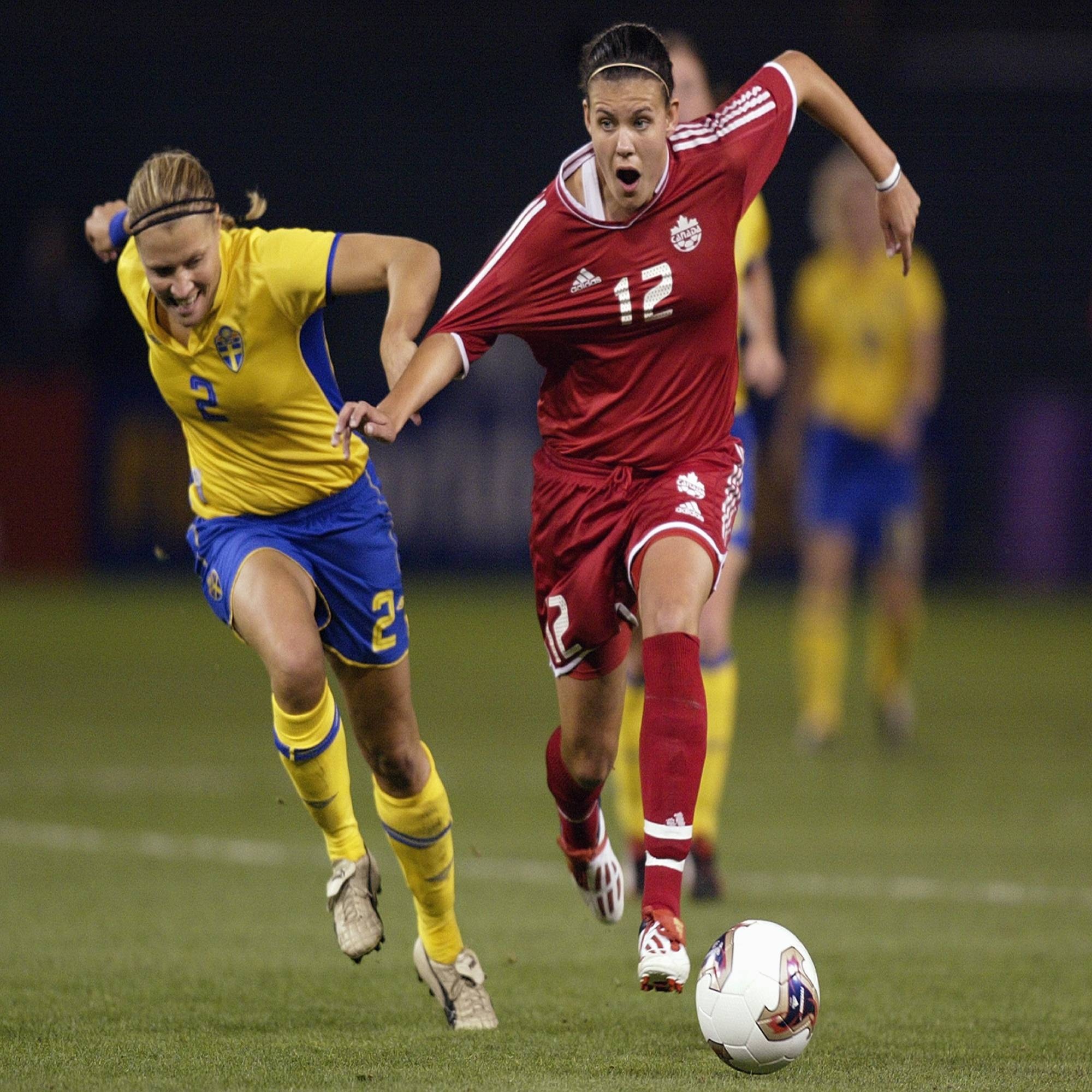
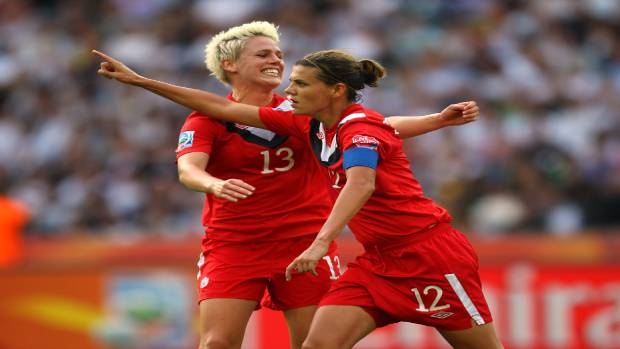
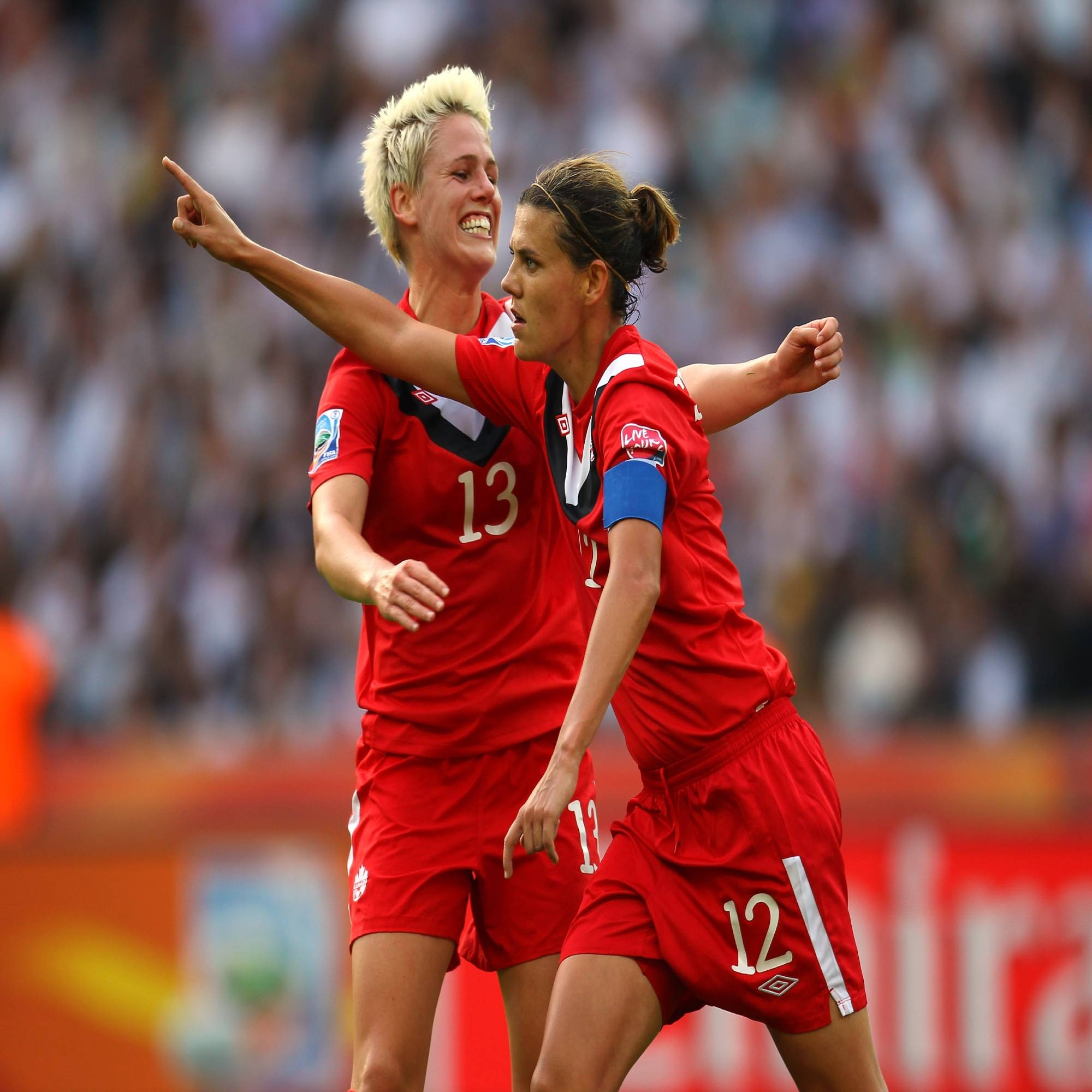
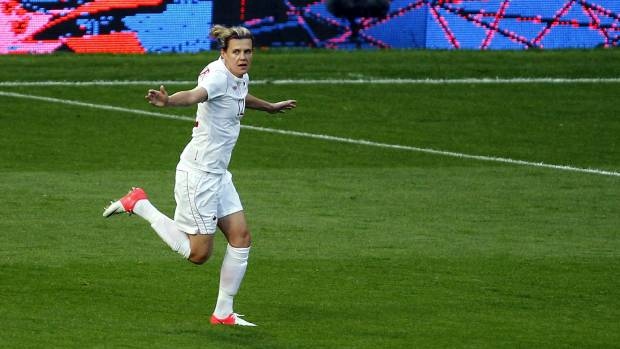
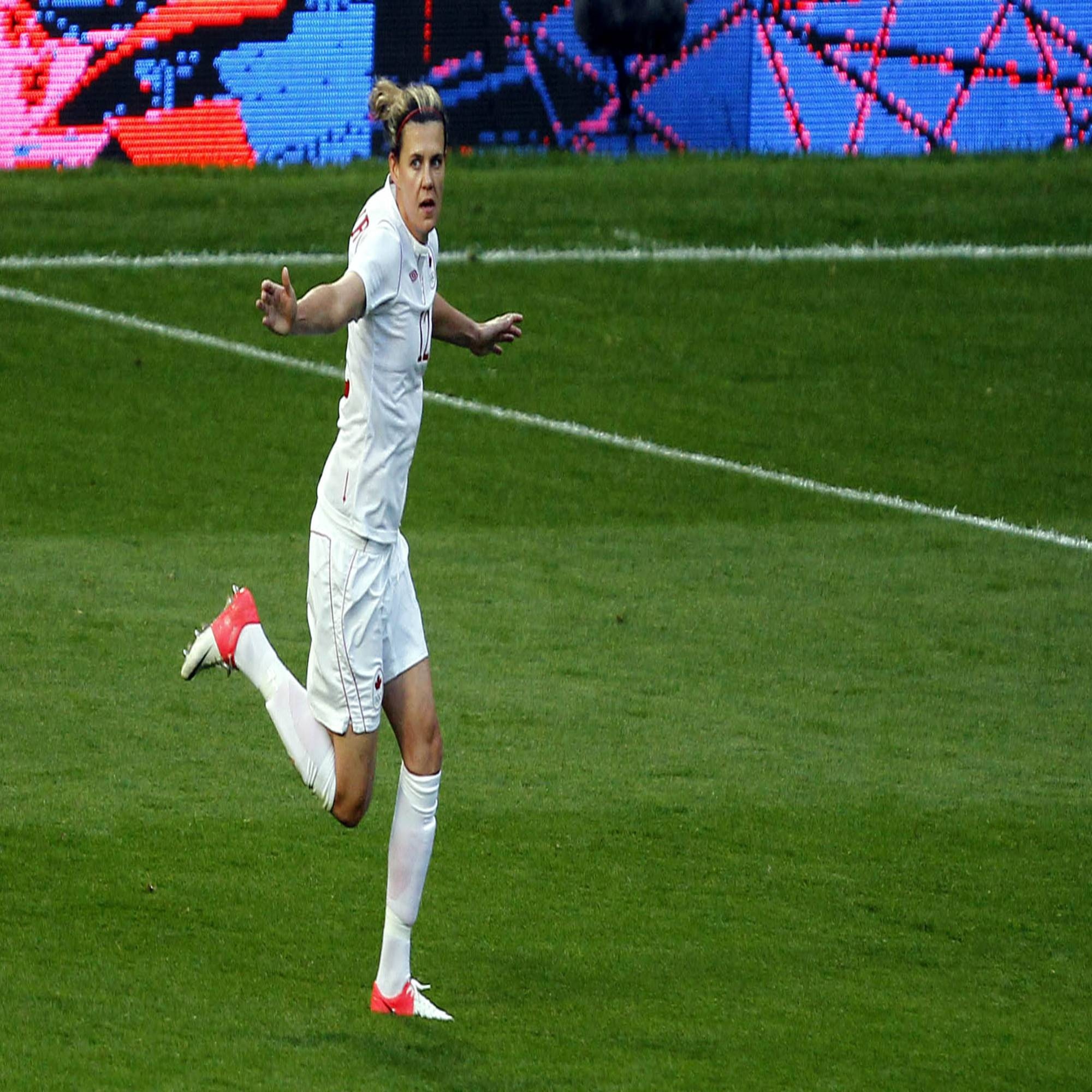
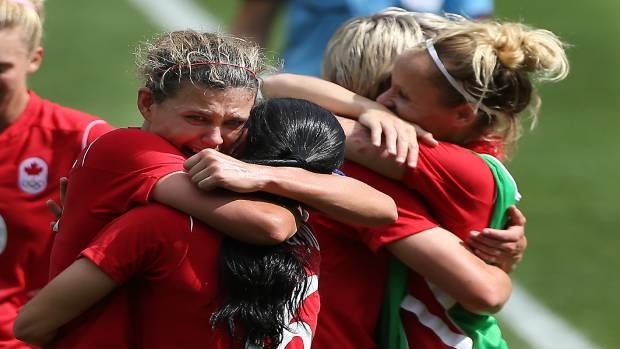
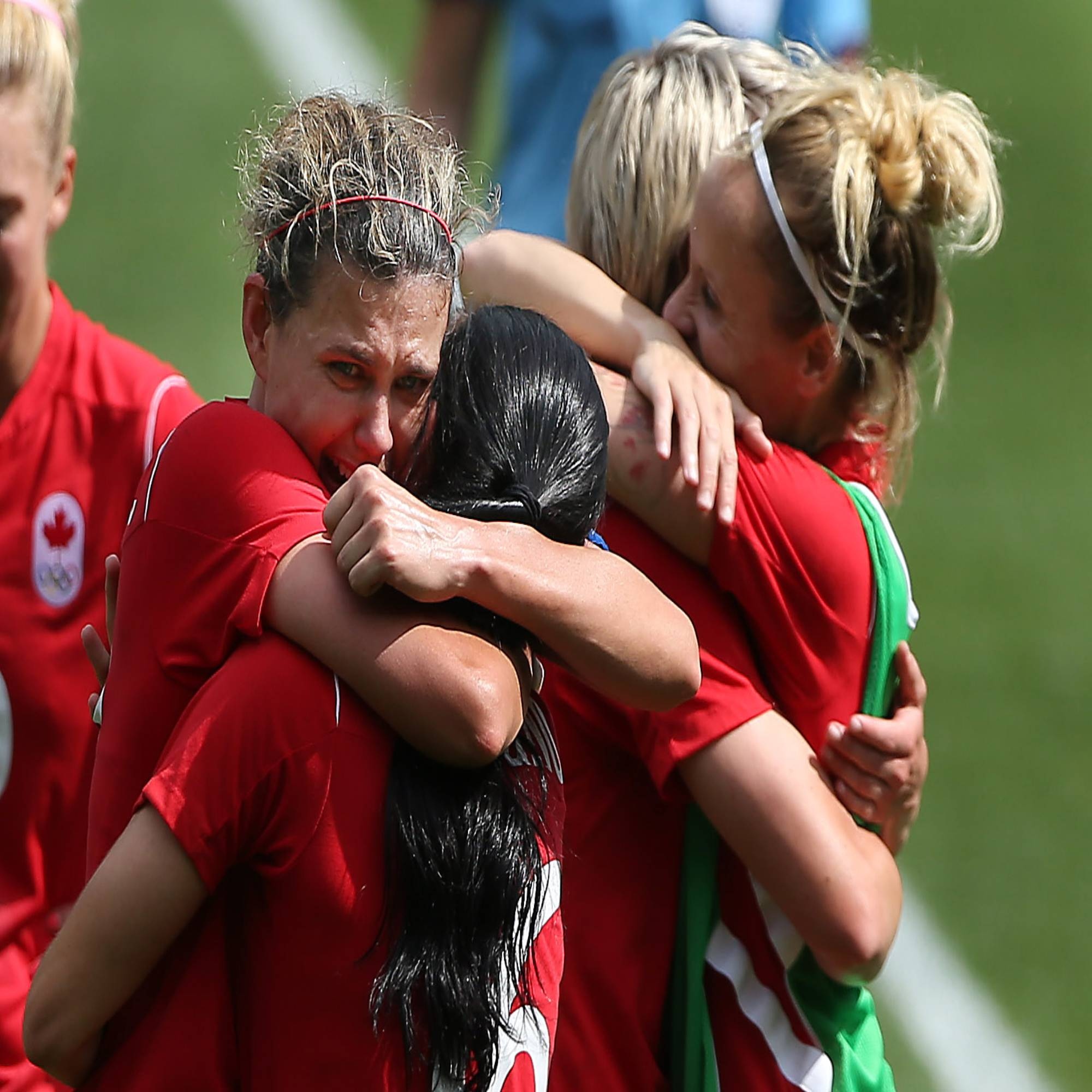
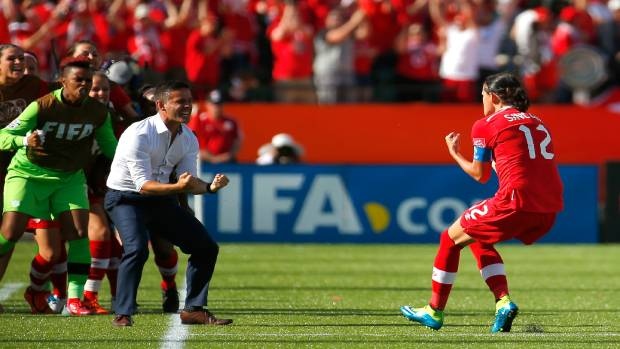
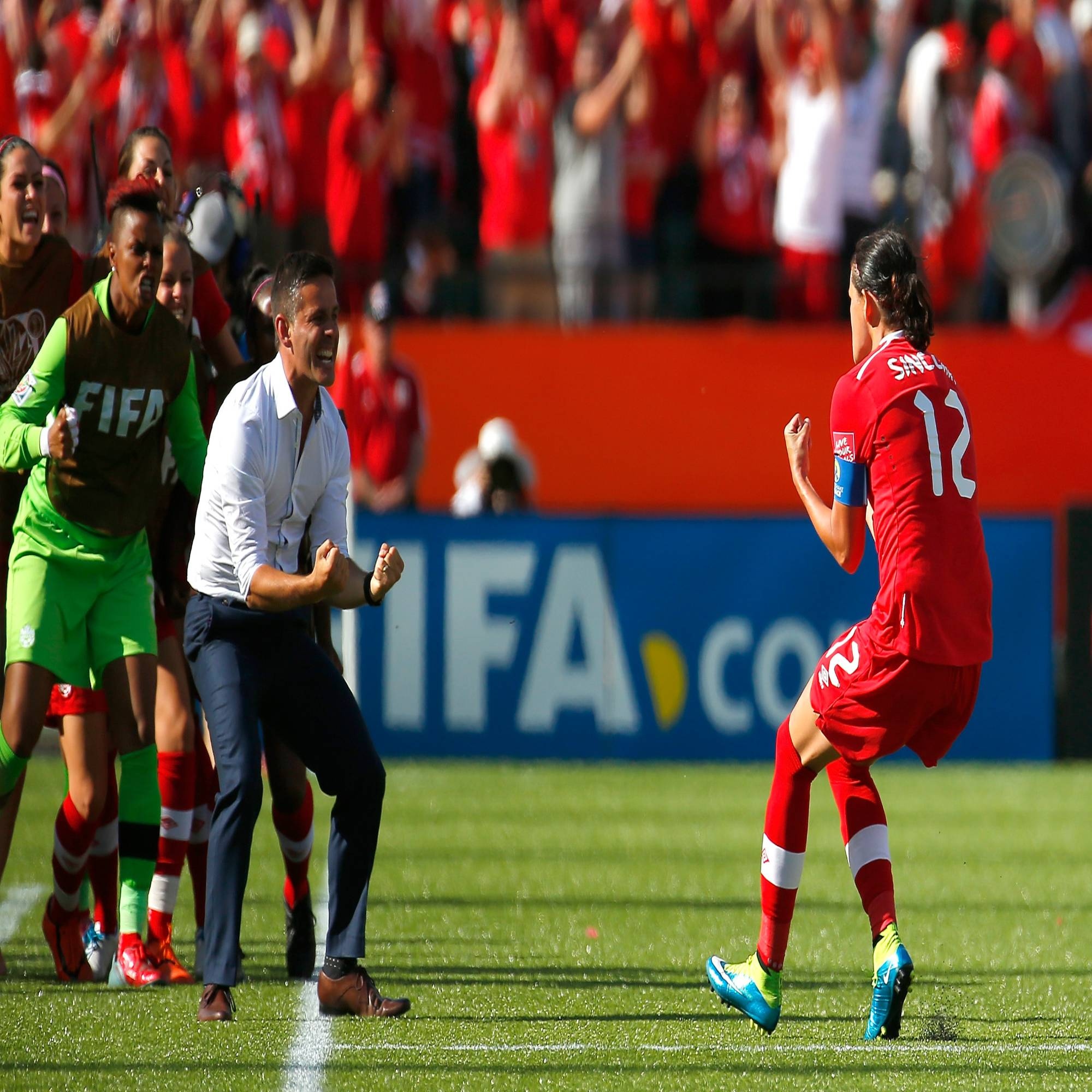
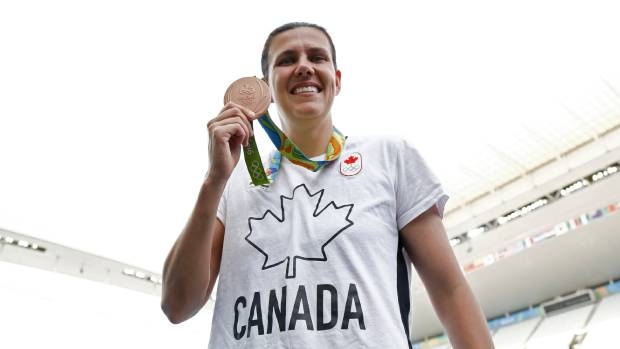
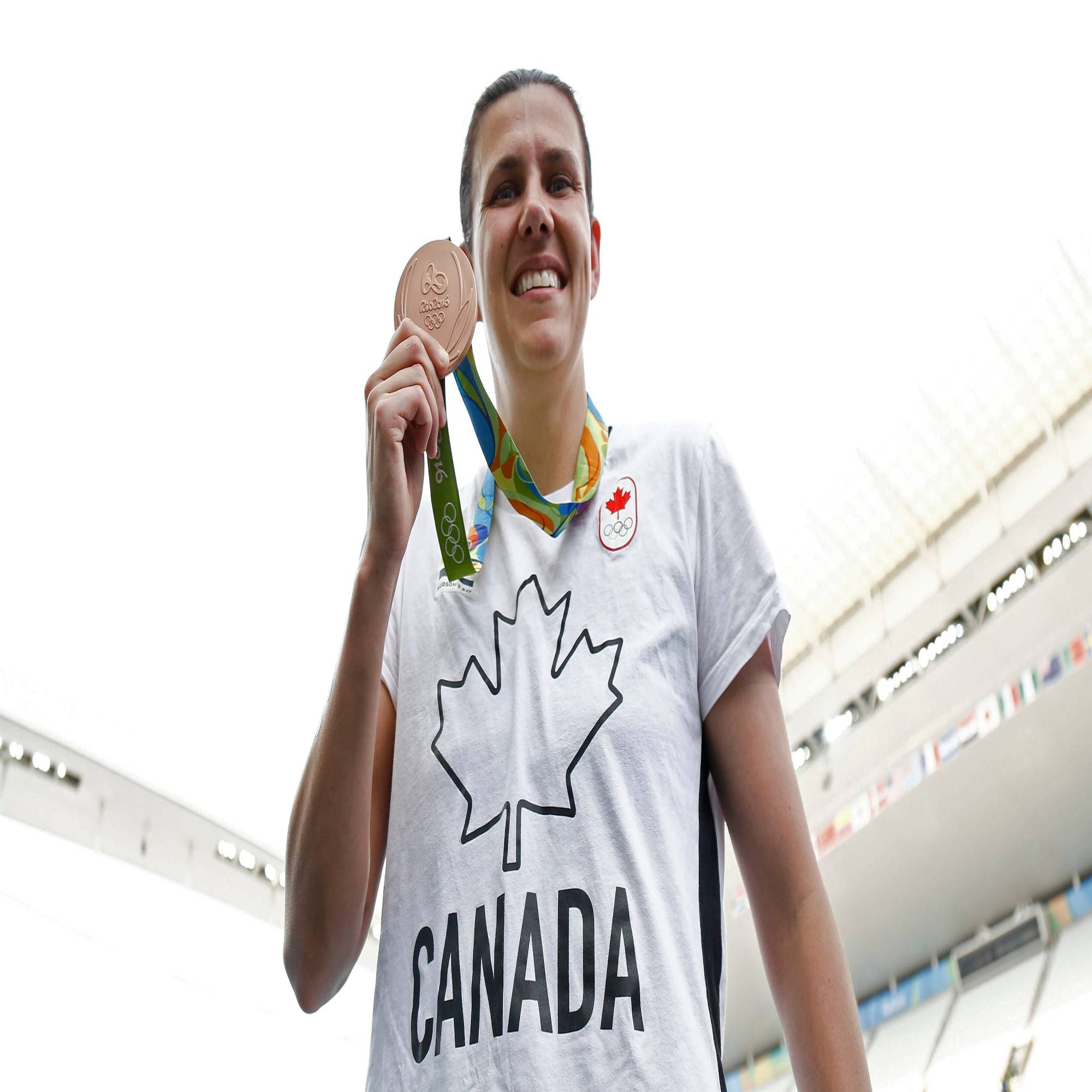
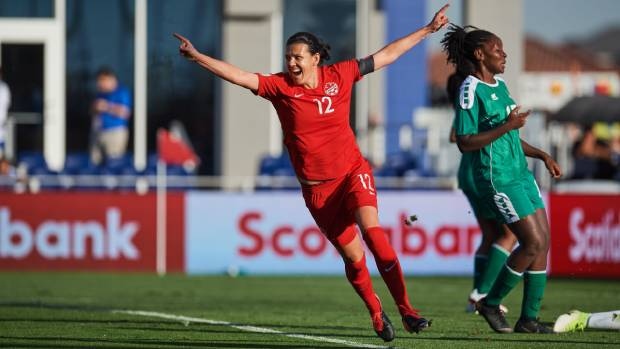
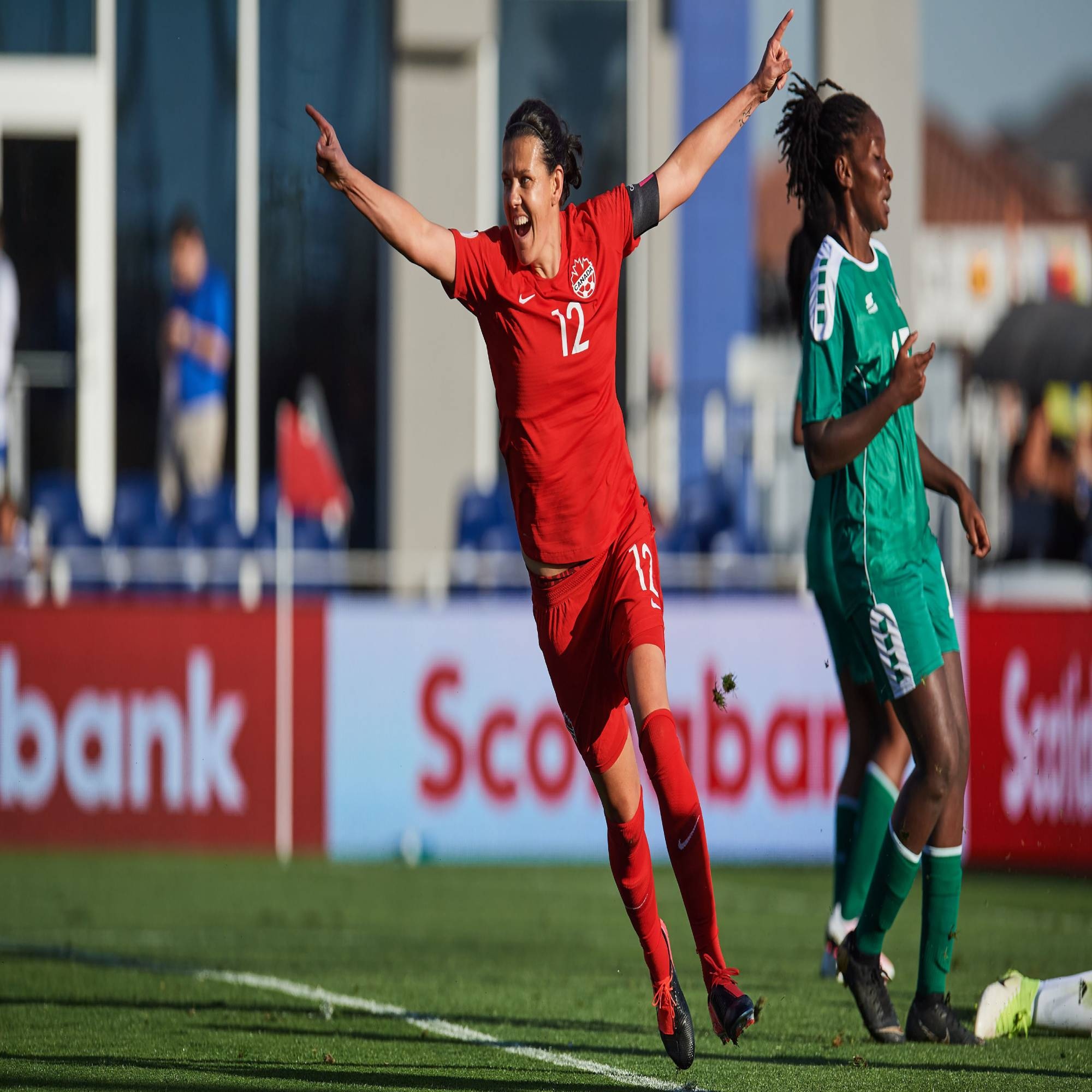
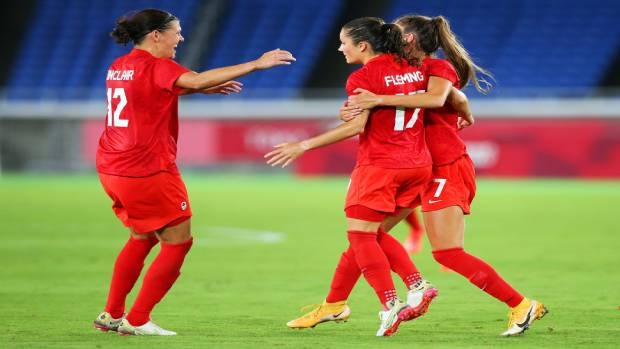
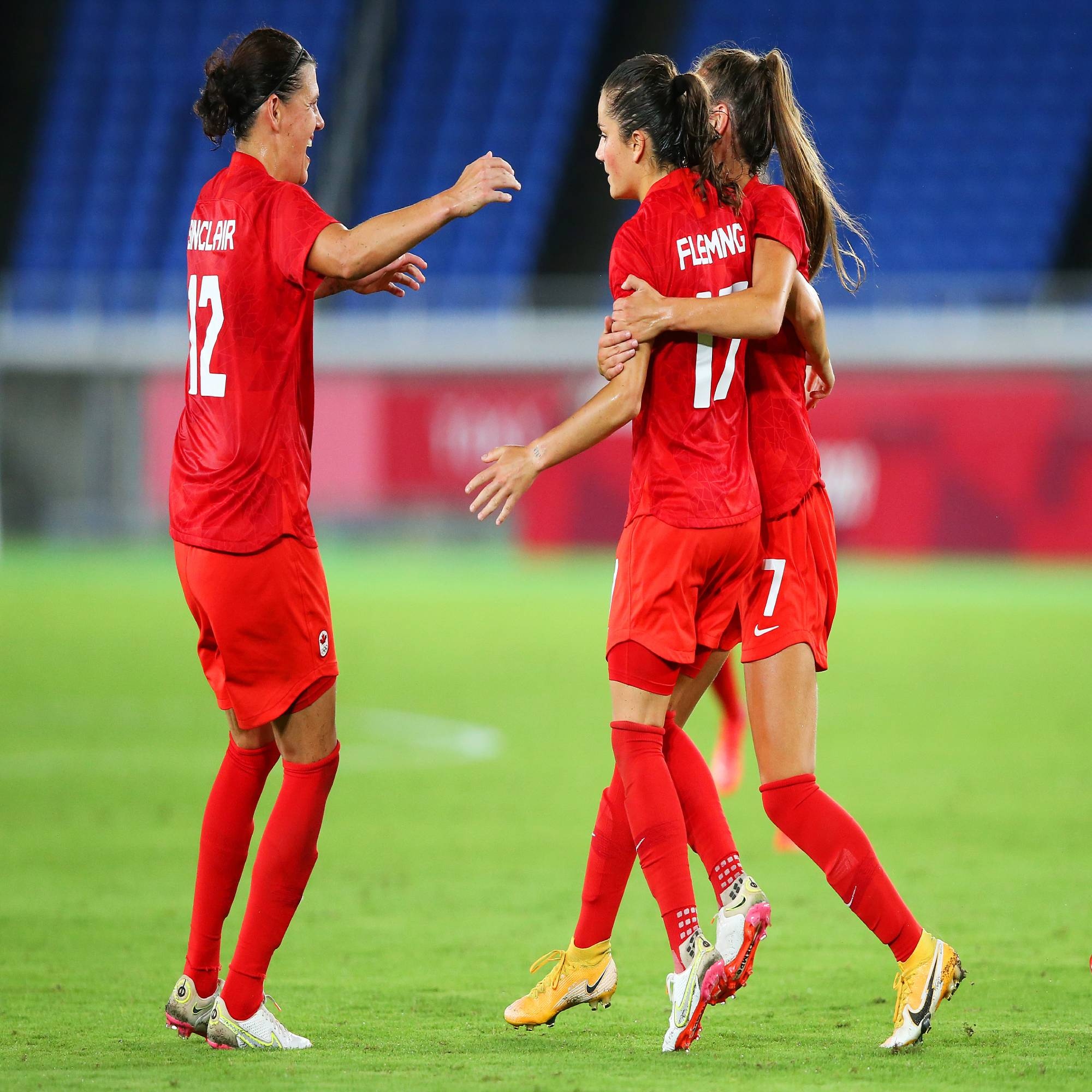
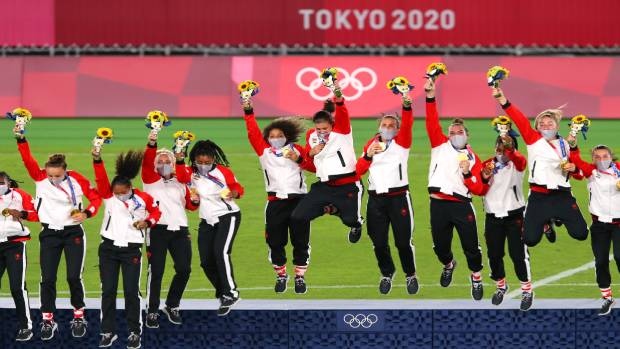
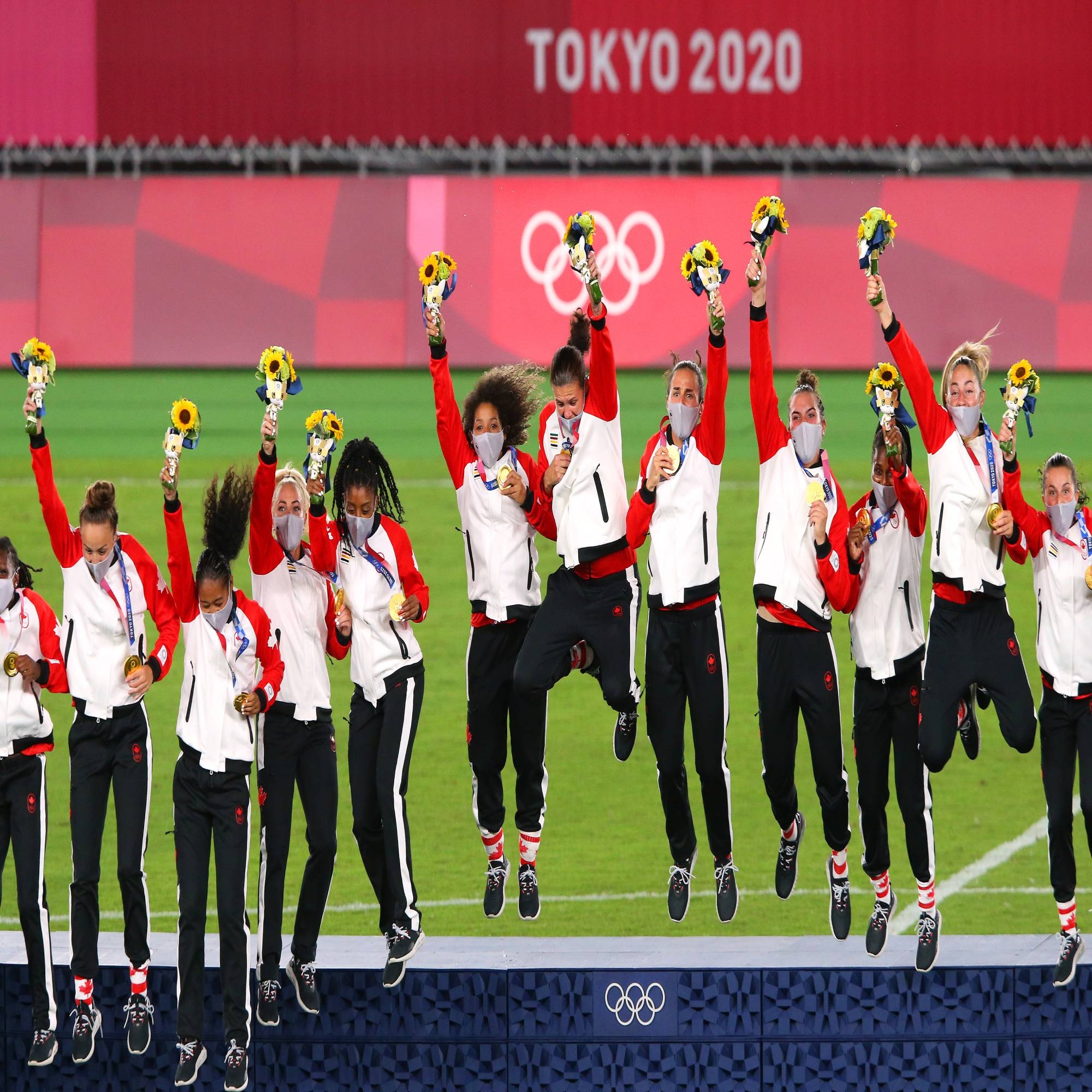
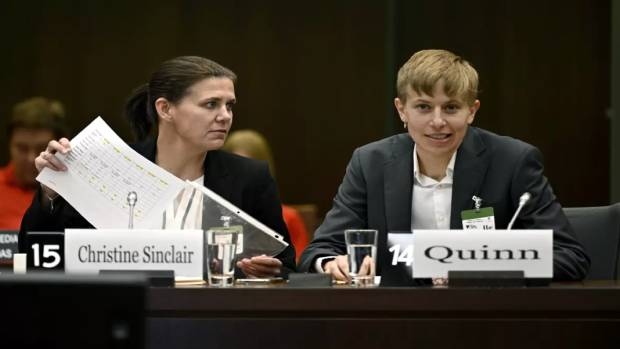
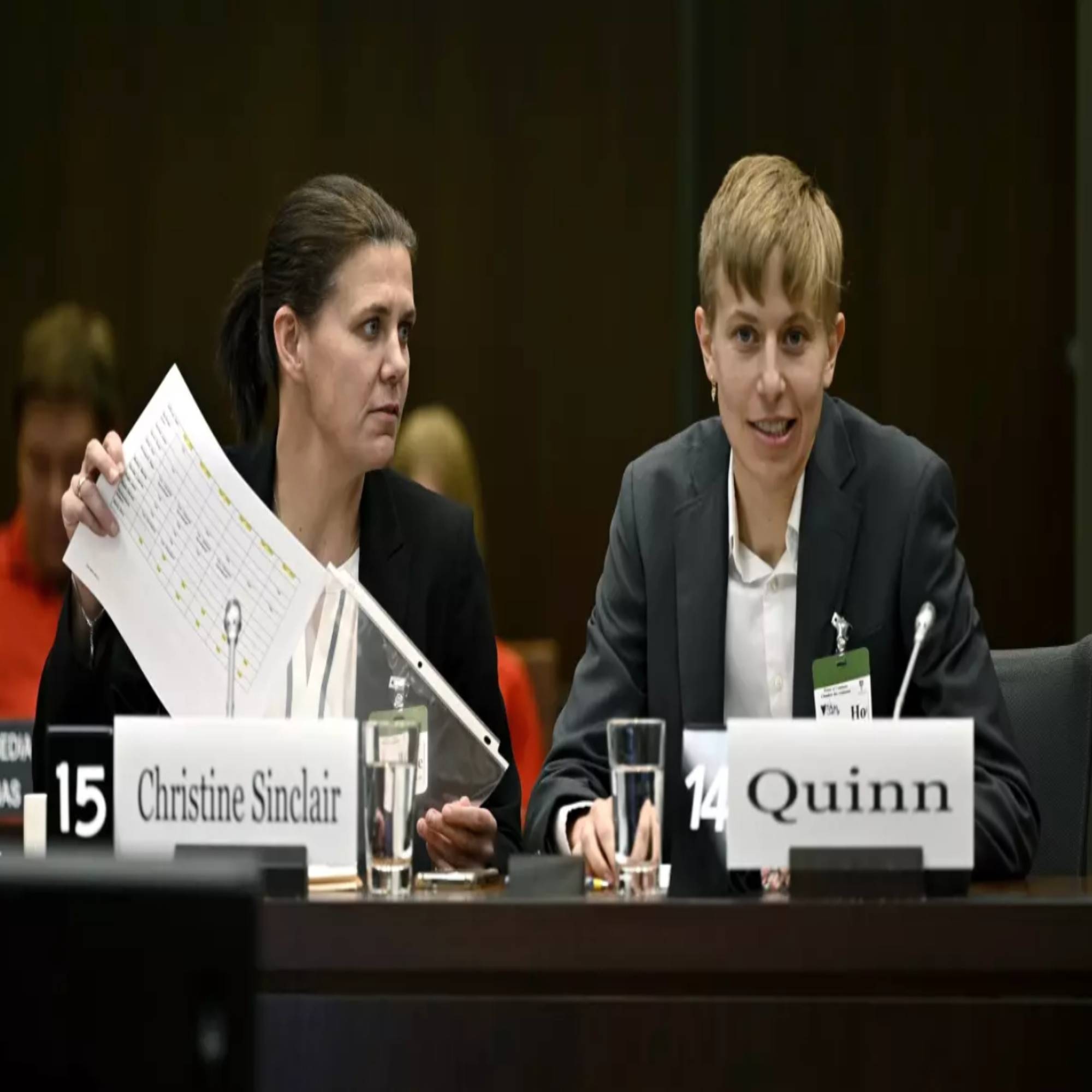









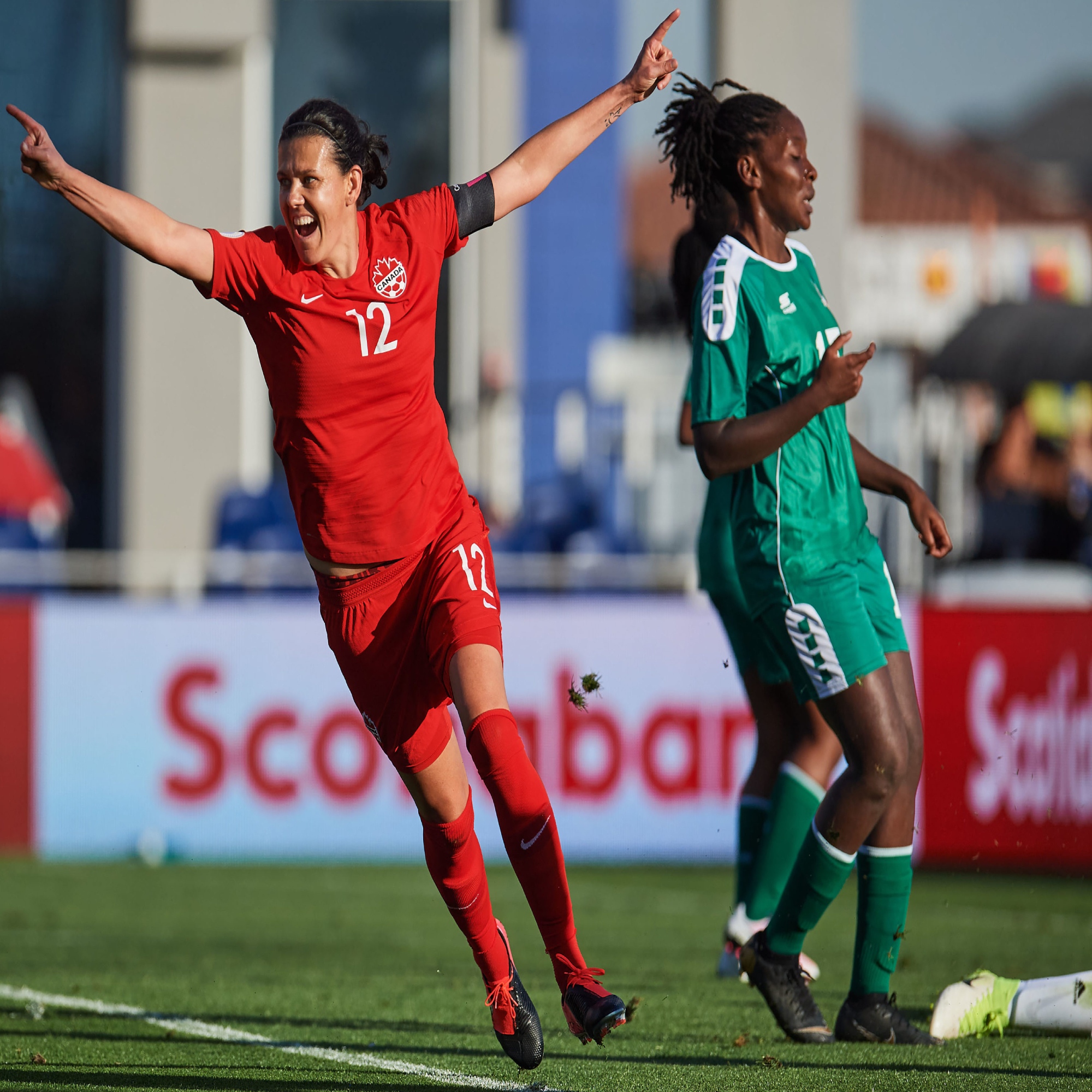






By Meaghen Johnson
The career of the greatest Canadian soccer player of all-time is almost at an end.
Christine Sinclair is preparing to step on the pitch one last time for Canada in a pair of upcoming friendlies. The Canadian women’s national team faces off with Australia in Langford, B.C. on Friday, and Sinclair’s final international match will take place in Vancouver on Tuesday.
It will mark the last time Canadian fans have to applaud the long-time captain for her years of dedication to her sport and her country.
In a career spanning over two decades, Sinclair has delivered some of the greatest sporting moments in Canadian history, from bursting onto the scene in Edmonton, to her legendary hat trick at Old Trafford.
TSN spoke to 12 former and current teammates and coaches for their recollections of the 12 most notable moments of the iconic No. 12’s career.

The First International Goal
On Mar. 14, 2000, a 16-year-old Sinclair scored her first international goal in her second cap for Canada, playing against Norway at the Algarve Cup. The Norwegians were a powerhouse in the women’s game at the time, having won the 1995 FIFA Women’s World Cup and coming off a fourth-place finish at the 1999 World Cup.
As told by: Even Pellerud, head coach, Canadian women’s national team (1999-2008)
“I do remember that very well because it was against Norway, my former team. I was very much conscious about throwing this young team out to the big wolves. I knew we were going to lose, and, of course, we did, but we went out and scored the first goal against Norway, and that was, of course, Sinclair. She just got the ball behind them, and she ran away from everyone and scored, just like that. We lost the game 2-1, but it was a very encouraging game for us.
She was the person to build the team around. How often do you say that about a teenager? She was just brilliant. She was always brilliant… Her decision making, her touches on the ball, her understanding, her timing – everything was natural for her. She just read the game perfect and had all the timing you need from a player who scores goals or who serves others for goals. It's just an amazing talent you rarely see. She just had it. I didn't coach her much. I just let her play.”

2002 FIFA U19 World Championship
The 2002 Under-19 World Championship was the first FIFA-sanctioned youth tournament for women. Canada was the host nation, and the team played all of its games in Commonwealth Stadium in Edmonton. The Canadians made it to the final, losing 1-0 in extra time to the United States in front of 47,784 fans.
Sinclair, 19, won the Golden Boot as top scorer with 11 goals in six games, and also took home the Golden Ball as best player of the tournament.
As told by: Ian Bridge, head coach, Canadian U19/U20 national team (2001-2008), and assistant coach, Canadian women’s national team (1997-2008)
“From the outside, she just seemed to be enjoying herself. I know that there was pressure on all the players, certainly in the final game… But she handled it like it was just – not another game, of course she knew the magnitude of these games. But she never wavered in terms of her steadiness, her finishing, her tactical knowledge, things she had to do on the field. She took everything in stride.
I remember back in the day I'm making notes as the game was going on. If ever there was something like a breakaway, I could put my head down, ‘Sinclair, shot, goal,’ without even looking because she just had this uncanny knack of – if you had a chance, it was more likely than not going in. If she missed the big chance, that was a bigger surprise than the ball going in the net.
I don't know how nervous she was. I certainly remember my nerves on some of those games were way up there. But the mark of a great player is to be able to handle all that stuff and she certainly did.”

2003 FIFA Women's World Cup
A 20-year-old Sinclair made her World Cup debut at the 2003 edition of the tournament. She recorded three goals and helped Canada finish fourth, which is still the team’s best-ever result at a World Cup.
At the time, Sinclair was playing for the University of Portland, and Canada’s quarter-final and semi-final games were played at PGE Park in Portland.
As told by: Andrea Neil, Sinclair’s teammate with Canada (2000-2007)
“It must have been a very special time for Christine because this was a tournament that was supposed to be played in China, and then in the months before, got moved to the U.S [due to SARS outbreak in China]. To play a few different games in front of her second home of Portland must have been very special for her.
It was just really interesting to see somebody like Christine grow throughout a tournament, have a different amount of pressure. It almost felt like a home World Cup, although it was in the U.S., because we had so many people coming down to support us, and then that community that supported Christine from her university career as well. I just saw her grow throughout. And that was an amazing journey, a hard and exhausting journey, but a great one.
It's often not necessarily the goals that she scores, but I just remember her and her workhorse mentality in everything and her never-give-up attitude, and that team had to carry a never-give-up attitude throughout. So, that's what I really remember from Christine are those moments where she was working selflessly for the team, not necessarily as the goal scorer at the time, but at times doing the grit work that really embodies a Canadian way.”

2011 World Cup goal vs. Germany
At the 2011 FIFA Women’s World Cup, Canada opened the tournament against the hosts, Germany, in front of a record-setting crowd of 73,680 fans at Olympic Stadium in Berlin.
Earlier in the match, Sinclair had taken an elbow to the face from a German player and suffered what was later confirmed to be a broken nose. The coaching staff were anxious about her returning to the pitch, but Sinclair was adamant that she remain in the game.
As told by: Sophie Schmidt, Sinclair’s teammate with Canada (2005-2023)
“We were down [2-0]. That game was wild… playing against a home nation is definitely something special. We felt like gladiators in that game. You're in this huge stadium. It's packed… the tunnels [were] shaking.
When they scored, the amount of noise in that stadium was insane. And then when we had that free kick, you get a feeling. It was just so much calm, and Sincy was so confident in that moment. And you're like, ‘This is going in. She's going to find a way. We're going to score.’
And then just the silence after we scored. I remember she turned around, one of her classic Sincy celebrations, and I just jumped on her. The feeling I think of just scoring in a World Cup and her just thriving – that's what she does, score time and time and time again for us in big moments. That was definitely a special goal. Picture perfect, perfect free kick.”

2012 Hat Trick vs. U.S. at London Olympics
In front of more than 26,000 fans at Old Trafford in Manchester, Canada faced off with their American rivals in the Olympic semi-finals. The U.S. were the top-ranked team in the world and hadn’t lost to Canada, ranked seventh at the time, since 2001.
The game would quickly be hailed as an instant classic by media and fans, and Sinclair’s performance helped earn her the Northern Star Award (formerly called the Lou Marsh Award) as Canada’s top athlete of the year.
As told by: Melissa Tancredi, Sinclair’s teammate with Canada (2004-2017)
“Inhuman, honestly. I can't even describe it… Every ball I gave her was a goal. You could see it in her eyes…I think Sincy at her best on the field is somebody who doesn't say anything. She just has this look. Any of her teammates will tell you, it's a very distinguished look that you're like, ‘She means business and we're going to win this game.’
She didn't have a team full of superheroes. She was definitely carrying us. I will never forget that. And you can see the moment where she's just running in slow motion and her eyes are just like lasers. She just had it. And if I'm playing against that, I'm like, ‘Well, we're in for a long game,’ because she was more than focused. She knew that she was going to do something special.
But I don't think people realize how hard that is, to score one international goal at that moment. But to score a hat trick against the No. 1 team in the world when we weren't even expected to be there? That, to me, is one of the best games I ever watched and played in soccer. I look at maybe [Kylian] Mbappé in the past World Cup where it’s that kind of the level of performance I saw and got to be a part.
That's where she was like, ‘This is who I am,’ and kind of really nailed her name in the history books.
You have a player like that on your team, you think you can win anything. We have Sinclair. You can have 11 players. We have Sinclair. That's how we felt before that, and I think that was just a coming-out party for her.”

2012 Olympic Bronze Medal
Despite Sinclair’s heroics, Canada would lose 4-3 to the U.S. in extra time on a last-minute goal by Alex Morgan, following some controversial refereeing decisions that went against the Canadians.
Faced with a quick turnaround for the bronze-medal match, Canada squeaked out a 1-0 win against France despite being largely outplayed, earning the country its first medal in a traditional team sport at the Summer Olympics since 1936.
As told by: Rhian Wilkinson, Sinclair’s teammate with Canada (2003-2017)
“When we lost to the U.S., what she said in the locker room is the reason we won bronze in the next game, because we had nothing left. We were just done. I remember thinking, ‘She just scored three goals and had the game of her career, potentially…and we let her down.’ That was a bit of a feeling, like we just couldn't hold it together over the finish line.
She had every right to be pretty pissed off when she got to the locker room. And she came in, and she just was such a captain and leader in that moment. And it allowed us to transform that terrible moment in our careers and lives into an opportunity that we were able to capitalize on against France in the bronze-medal game.
I'll never forget that because it was kind of out of character, not the good parts about it, but just speaking up and saying something… Sinc was always leading by example. But every now and then, she said something, and they were almost always the most impactful moments.”

2015 World Cup Goal vs. China
Canada, the host nation, opened the 2015 FIFA Women’s World Cup against China at Commonwealth Stadium in front of over 53,000 fans.
In a tightly contested match, the game was deadlocked 0-0 until Canada was awarded a penalty in stoppage time.
As told by: John Herdman, head coach of the Canadian women’s national team (2011-2018)
“As soon as she picks the ball up, you know. You know in that moment, in front of [50]-odd thousand people in Edmonton – like that moment, she's going to be there for you. She's going to be there for the team, for the country… In that moment, when it was all on the line and everything mattered, you knew she would be there.
I think those moments always brought the best out of her. Those big, white-hot moments – she could really come alive at that time in her career.
It was a privilege to be part of that moment with her. I remember celebrating after that goal with her, and it’s still a photo I have up in my office. It was one of my proudest moments to have shared that with the whole country in a home World Cup.”

2016 Olympic Bronze Medal
Canada stepped on the podium for a second straight Olympics after defeating the hosts, Brazil, 2-1 in the bronze-medal match at the Rio Games.
Sinclair finished the tournament tied for the team lead with three goals, including the game-winner against the Brazilians.
As told by: Stephanie Labbé, Sinclair’s teammate with Canada (2004-2022)
“Rio was a really special one for a few different reasons. Going into that tournament, Sinc had had a lot of hardship in her personal life. I think going into that, there was a lot of emotion riding on it for her. She had recently lost her dad [in April 2016].
To see the perseverance and courage that she showed, and the bravery that she showed during that tournament, to still come out and be such a force and such a leader on that team – for me, that's what I remember.
I remember after the bronze-medal game, the tears coming out of her eyes and just feeling the weight of everything that she had been through in the past year. But I just remember this strong, courageous, brave person with us in that locker room that was still able to lead that team with courage.”

Breaking the International Goal Record
Sinclair entered the 2020 CONCACAF Women’s Olympic qualifiers with 183 international goals, one back of tying American Abby Wambach’s record for the most all-time.
Canada opened the tournament against Saint Kitts and Nevis, and Sinclair scored her 184th and 185th international goals to secure her name in history.
As told by: Janine Beckie, Sinclair’s teammate with Canada (2014-present)
“She didn't want to talk about it at all. She didn't want anyone to mention it to her. And I think what's really special about our group is that we just have an unbelievable amount of mutual respect for one another. When you know Sinc’s personality is the way that it is, we didn't talk about it… She just needed to be left alone and to be able to acknowledge that milestone when it happened and not have the buildup. I know for her, she was just relieved to have it done and have gotten past that moment. But for us, it was great, and she's incredible about celebrating when the time comes to celebrate.
I think what stands out to me the most is all she wanted to do was celebrate with us, and that is the epitome of her. It's never about her. It's always about the team. It's always about all the people that have contributed or that are a part of things, and I think that it's just so her. She hates things being about herself.
We had little goat masks, the starting 11 had little goat masks that they wore in the starting 11 picture, and we had them on the sideline.
She's not a grinch. She loves to celebrate when there's something to celebrate… But she just thinks we're a bunch of idiots whenever we do things, so that makes it even more fun.”

Defeating the U.S. at the Tokyo Olympics
Nine years after Canada’s heartbreaking loss to the Americans at the London Games, the stage was set for a rematch in the semifinals of the Tokyo Olympics.
With under 20 minutes remaining in the match, and the score still 0-0, Canada was awarded a penalty. Sinclair picked up the ball and handed it to 23-year-old Jessie Fleming.
As told by: Jessie Fleming, Sinclair’s teammate with Canada (2014-present)
“I think everyone makes a really big deal out of that moment, but I was always going to be taking the penalty. So, we kind of chuckle about it because everyone thinks it was this big moment, but it was kind of routine for us.
But I do think that that speaks to Sinc and the leader that she is and the fact that she didn't need to be the person taking the penalty at that given time. I had been having success in training and we thought that I had the best chance of scoring for the team, and it was that straightforward for her. She didn't need to be the star of the show in that moment.
I think it just really speaks to her humility, and at the end of the day, Sinc just wants to win. She's not afraid to put others on the team ahead of her if that's what the team needs. So, if anything, that moment really speaks to her as a leader.
Before the kick, I think she said something like, ‘We've got your back,’ regardless of if I missed or scored. Obviously, it was a very significant moment, it being kind of late in the game, and I was very nervous, to say the least. So, she just reassured me that our team and our support staff were standing behind me. Very few words, but I think they were very powerful.”

Tokyo Olympics Gold Medal
After their win against the U.S. in the semifinal, Canada would go on to beat Sweden on penalties in the gold-medal match to secure Sinclair and the national team their first-ever title at a major tournament.
As told by: Desiree Scott, Sinclair’s teammate with Canada (2010-present)
“Being on the journey with Sincy for so many years – she was obviously in the program long before me – but from London 2012, when we really set the tone for who we are as a team, to see the grind and just the belief to continue and grow. You can say you're going to go and win a gold medal, but not a lot of teams accomplish that. And to be on the journey over the last decade with Sincy, to see the work, the effort, and to be doing it alongside her – I think is really, really special to then get to the top of a podium.
She put my gold medal around my neck – I happen to be number 11 – and for me, that moment is going to go down in history as one of the best moments of my career. To have that alongside her – what she's done for the program, all the effort and hard work that she's put in come to fruition – and hear your anthem and get that world champion title is just massive.
She has a legacy all on her own. Without that gold medal or not, I think in Canadian sport in general, but also across the world, in the soccer world, she's a household name. But I do think that gold medal really just was the cherry on top.”

Fighting for Change
As a player representative for the women’s national team, Sinclair has been a key figure in fighting for equal opportunity for her teammates and for future generations.
Earlier this year, Sinclair was at the forefront of the team’s dispute with Canada Soccer over issues regarding equitable treatment and budget cuts. Alongside fellow player reps Schmidt, Beckie and Quinn, Sinclair testified before the Standing Committee on Canadian Heritage to speak about the players’ labour dispute.
As told by: Quinn, Sinclair’s teammate with Canada (2014-present) and a player rep for the Canadian Soccer Players Association
“I think a lot of people aren't going to understand what she's done behind the scenes and the work that she's put in, even at times putting her neck out, because her saying words is sometimes different from any of us doing it. It’s so impactful when she does use her voice, and I think it's uncomfortable for her at times, but it's made a huge impact.
She understands that when she leaves the game, she wants to have it changed, and she wants to make it better both for our team and for every young player coming up in Canada. And so, I think she really lives that identity off the field, and that's something that not everyone sees, but I really admire.
She's the type of person that if she understands an opportunity, she's going to go after it. I think, for her, that was another opportunity that she understood – she can make a huge impact. She's always going to go and fight for that and push for that. And so, I think that's her character – to always just go towards the next thing and make that impact, whether it's on the field or off the field.”